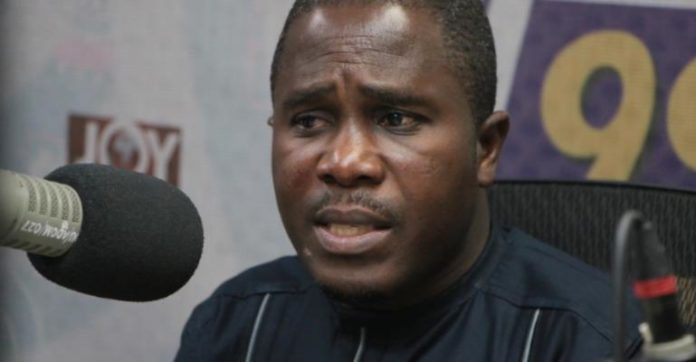Paa Kwasi Anamua Sakyi, Executive Director for Institute for Energy Security(IES)
The developed part of the globe have found reliable and affordable energy as an enabler to goods and services that has enriched and extended lives. And for developing countries, the need for consistent supply of affordable energy is more vital to modernizing agriculture, increasing trade, empowering women, saving lives, improving transportation, expanding industries, and powering communications; serving as building blocks for escaping poverty and enriching lives.
However, access to energy in developing countries especially in sub-Saharan Africa (SSA) remains disappointingly low. According to the International Energy Agency (IEA, 2017) 590 million people, representing roughly 57% of the population, remain without access in SSA; making it the largest concentration of people in the world without electricity access as efforts have often struggled to keep pace with population growth. And over 80% of those without electricity live in rural areas, where the electrification rate is less than 25%, compared with 71% in urban areas.
In 2016, only eight countries were listed as having an access rate above 80% – Gabon, Mauritius, Reunion, Seychelles, Swaziland, South Africa, Cape Verde and Ghana; while most countries had a rate below 50% and some had a rate of below 25%.
Of those without access to electric energy in sub-Saharan Africa, West Africa is reported to accounts for 30%. Putting the average access rate across West Africa at 52%, with Ghana being one of the most successful countries in the sub-region in expanding access.
Energy access is defined by the IEA as “a household having reliable and affordable access to both clean cooking facilities like liquefied petroleum gas (LPG), and to electricity; which is enough to supply a basic bundle of energy services initially, and then an increasing level of electricity over time to reach the regional average. The body sees it as the “golden thread” that knits together economic growth, human development and environmental sustainability.
Access to modern energy has been described severally as the missing Millennium Development Goal (MDG), as energy services can contribute to a large extent to the attainment of all Sustainable Development Goals (SDGs). The lack of access to modern energy (part of SDG 7) is seen as an impediment to a country seeking to tackle the numerous challenges that it is confronted with, such as food production and security (SDG 2), poverty (SDG 1), delivering quality education (SDG 4), adaptation and mitigation of climate change (SDG 11), and gender inequality (SDG 5).
From Access to Security
Providing energy access to the growing sub-Saharan Africa population, however, is not enough to ensure economic and social development; especially at such a time of global market uncertainty. Countries must therefore advance from energy access to energy security which is described as a vital condition in which an energy system can function optimally and sustainably; free from risks and threat.
Energy security may be defined differently by many authors from contextual views, but the varied definitions are however based on the premises of sufficient and reliable supply of energy at affordable prices in centralized energy supply systems. It must therefore be a non-negotiable pursuit for any country or a region, due to the key role of energy in the functioning of the modern society.
Energy security is among the priority targets for industrialized states, and for countries that hope to advance development. And that serious economies are putting energy security at the forefront of thinking, given the considerations about climate change, energy market volatility, geopolitical influences, and energy price deregulation. The step is an attempt to escape energy poverty which takes different forms, including a lack of access to modern energy services, a lack of reliability when services do exist and concerns about the affordability of access.
Regional Cooperation
The concept of regional cooperation have been embraced by a large section of states in Africa and the world over as Regional Economic Communities (RECs) with diverse scope and membership. It is expected to serve as catalyst for amplifying regional cooperation and policy coordination in vital areas specific to the member states through a collective action.
The advantage derived from regional economic integration are several, with the most riveting being the need to create partnerships that would enable the countries involved the chance to compete remarkably on the international market.
Taking into consideration the splinter and undiversified nature of most African economies combined with their small size, regional collaborations are crucial to reposition African economies in participating actively on a world scale, giving them more appreciable leverage to bargain effectively for market access and to reduce the effects of marginalization and unfair competition.
Beyond the expanded market, regional integration results in increased continental trades, strengthened security and conflict resolution within the region, and the free movement of people across the region. And while reducing the demand for third-party international imports, regional integration potentially attracts significant Foreign Direct Investment (FDI) from both within the region and from abroad, due to the enlarged market and product rationalization.
Sub-regional Power Market
In the context of Africa, one of the reasons for which the many regional economic communities have largely failed to be effective, is as a result of the resources similarities which makes it difficult for the member States to trade effectively.
However when it comes to electric energy, while West Africa is grappling with similar and multiple challenges; it is endowed with varied energy resources. And so, the countries in the sub-region have a range of energy opportunities to collaborate on to deepen its access to energy and ensure energy security. The economically sound allocation of its energy resources is likely to be more efficiently accessed and distributed using regionally integrated energy planning and trading.
Power pooling is becoming a normal trend in developing regions, with the creation of efficient sub-regional power markets expected to achieve economies of scale while ensuring that demand-supply complementarities are not laid waste.
Examples of power pooling in Africa includes the Eastern Africa Power Pool, and the Southern Africa Power Pool made up of Zambia-Tanzania-Kenya interconnection. But these co-operations has traditionally been on bilateral and cross-border trades.
West Africa is also seeking a shift in trading terms with the formation of the West Africa Power Pool (WAPP), aimed at integrating the operations of national power systems into a unified regional electricity market. The intention is to assure a stable and reliable electricity supply at a competitive rate; and through long-term energy sector cooperation, unimpeded energy transit and increasing cross-border electricity trade.
The creation of the regional power market may come in the form of inter-country cooperation on building energy infrastructure, conducting joint prospecting for reserves, power trade, and technology development et cetera.
The inter-country trade and exchange of electric power makes both economic and logistic sense as it may be more favorable for the border regions of one country to source for power from a power station close by in a neighboring country than a far off station within the country’s boundary. More so, electricity cannot be stored, hence supply and demand need to be efficiently managed.
Key Benefits
Two vital benefits that could be derived from the regional power market are the prospects of effectively utilizing inequitably distributed fuel resources, and scaling the funding gap.
Internalizing Fuels: By internalizing the fueling of power plants in West Africa, the sub-region can achieve higher ranking of price steadiness, and mitigate the risk that comes with depending on external sources.
While hydro, oil and natural gas has been the leading fuels for power plants in the region; uranium, coal, cobalt, and the likes are becoming indispensable to countries that are working towards their primary energy supplies.
Aside crude oil and natural gas, West Africa boosts of vast deposit of coal and uranium in the region. And since thermal power plants are challenged with the problem of insufficient gas supply and expensive crude oil, just as hydropower plants are confronted with low water levels; West Africa could therefore commit to harnessing a large part of its electricity generation from coal and uranium as basic fuels on a regional scale, applying technologies to manage any harmful environmental effect that may be associated with their use.
Scaling the Funding Obstacle: Apart from mitigating against power shocks and relieve shortages, the regional approach of grid connection affords the opportunity to some countries that on their own cannot attract private funding in the electricity market, and benefit from projects implemented on regional scale.
Presently, few financial instruments exist, particularly in sub-Saharan African countries; to improve the limited access, high operational cost, and poor service quality of energy. And the existing bilateral and multilateral funding channels for energy infrastructure are in short supply. Consequently, nearly all African countries are earnestly requesting for private sector funding for power projects. However, it is increasingly becoming difficult to access the needed investments due to political risk, microeconomic instability, poor governance structures, and institutional weakness in the developing economies.
Cooperating on regional basis in energy infrastructure projects to pool power, offers one sure way of scaling some of the challenges associated with attracting private sector funding to improve on energy access and energy security.
Written by Paa Kwasi Anamua Sakyi, Institute for Energy Security ©2019
The writer has over 22 years of experience in the technical and management areas of Oil and Gas M anagement, Banking and Finance, and Mechanical Engineering; working in both the Gold Mining and Oil sector. He is currently working as an Oil Trader, Consultant, and Policy Analyst in the global energy sector. He serves as a resource to many global energy research firms, including Argus Media.















